NDIS Social & Community Participation: Examples & How-To get Involved
Your guide to Social and Community Participation under NDIS
The National Disability Insurance Scheme (NDIS) is all about helping you live your best life. A big part of that is getting involved in your community and connecting with others. This blog post will explore what social and community participation means under the NDIS, provide practical examples, and guide you on how to access funding and support to achieve your social goals.
What is Social and Community Participation Under the NDIS?
Social and community participation refers to activities that allow you to connect with others, build relationships, and be an active member of your community. It's about more than just filling your days; it's about enriching your life, fostering independence, and promoting inclusion. The NDIS recognises the importance of these activities and provides funding to help you participate in a way that suits your needs and interests.
Think of it as the NDIS helping you to:
- Make friends and build relationships: Connect with like-minded people and form meaningful connections.
- Learn new skills: Participate in activities that help you develop new abilities and interests.
- Increase independence: Gain confidence and skills to participate more fully in your community.
- Improve your health and wellbeing: Social interaction and community involvement can have a positive impact on your mental and physical health.
- Feel included and valued: Be an active and respected member of your community.
Want to see how social and community participation can help you?
We offer a free guide on how you can utilise the benefits of Social and Community Participation
Get in touch
Social and Community Participation NDIS Examples
The possibilities for social and community participation under the NDIS are vast and varied. Here are some examples to spark your imagination:
1. Joining Social Groups and Clubs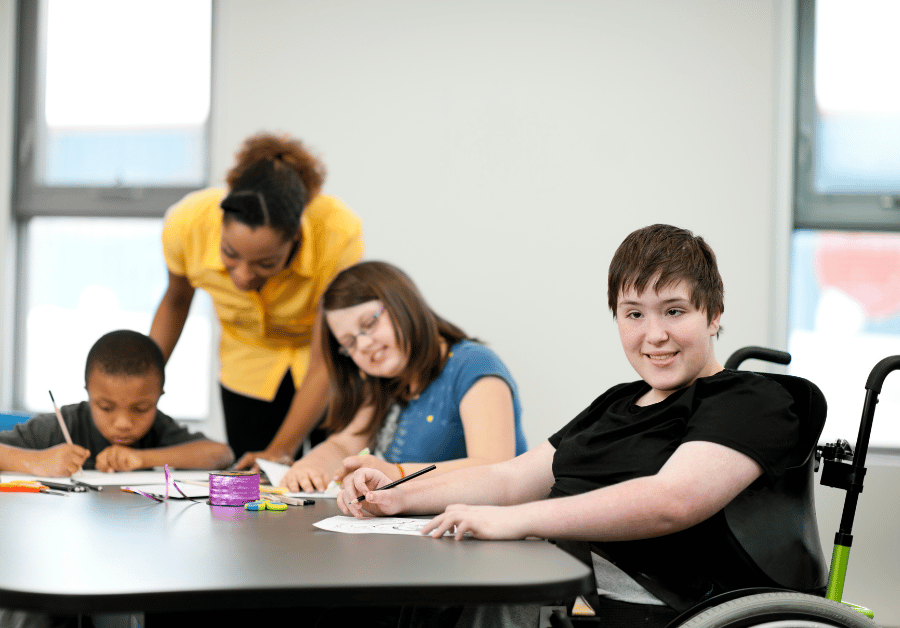
This is a fantastic way to meet people who share your interests. Examples include:
- Book clubs: Discuss your favourite books and meet fellow bookworms.
- Gardening clubs: Get your hands dirty and learn about plants and gardening techniques.
- Sports clubs: Participate in team sports or individual activities like swimming, bowling, or basketball.
- Craft groups: Unleash your creativity and learn new crafts like knitting, painting, or pottery.
- Gaming groups: Connect with other gamers and play your favourite video or board games.
2. Participating in Community Events
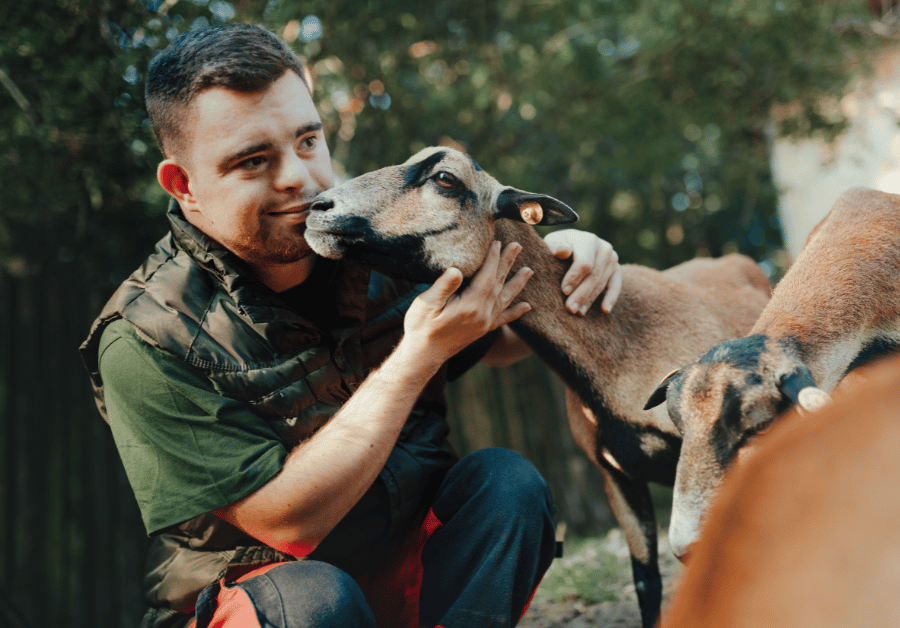
Attending local events with your support worker is a great way to experience your community and meet new people. Consider:
- Festivals and fairs: Enjoy live music, food stalls, and community spirit.
- Markets: Browse local produce, crafts, and artwork.
- Sporting events: Cheer on your favourite team or athlete.
- Concerts and performances: Enjoy live music, theatre, or dance performances.
- Community workshops: Learn new skills or participate in activities like cooking classes or art workshops.
Alliance Care Support offers a monthly event calendar for each city that your support worker can take you to. The friendly support workers will help you achieve your social goals.
Want to get started with socialising and more?
Talk to our Social & Community expert to get more ideas and develop your weekly plan
Talk to an expert from Alliance Care Support3. Volunteering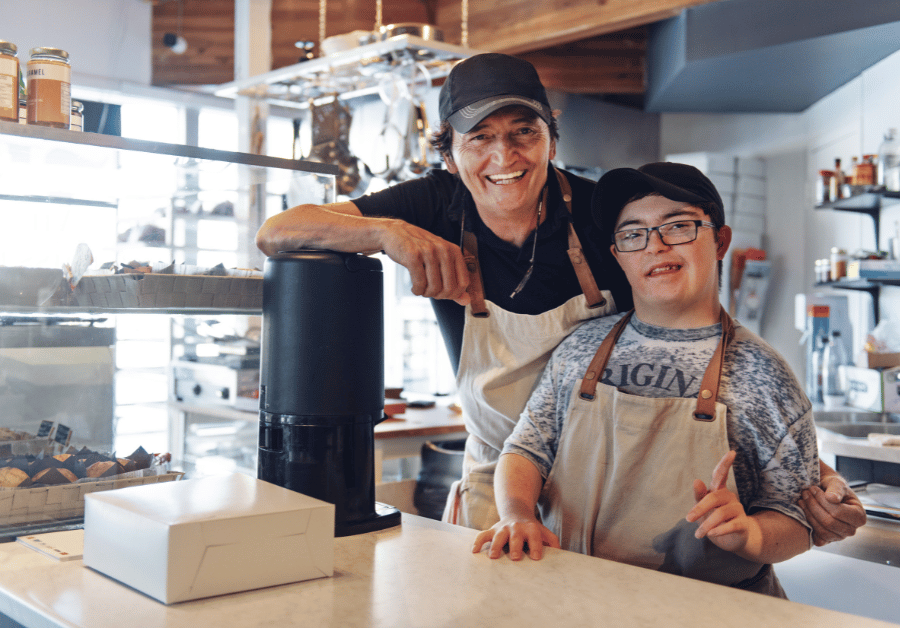
Volunteering is a rewarding way to give back to your community and make a difference. Examples include:
- Working at a local charity: Assist with fundraising, administration, or direct service delivery.
- Helping at an animal shelter: Care for animals and assist with their adoption. E.g. Volunteering at RSPCA.
- Assisting at a community garden: Help grow food for those in need.
- Mentoring young people: Provide guidance and support to children or teenagers.
- Participating in environmental clean-up projects: Help protect your local environment.
4. Educational Courses and Workshops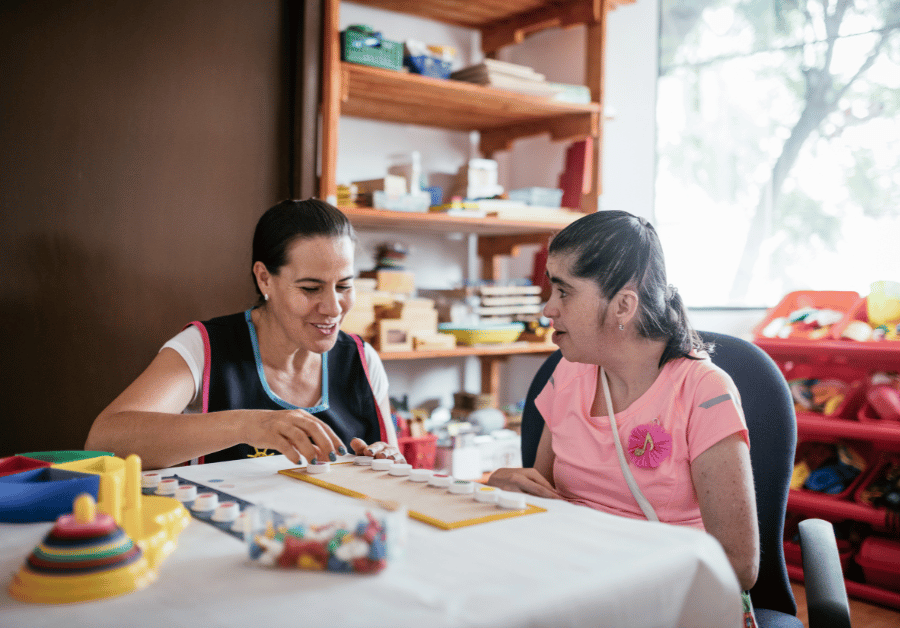
Learning new skills and expanding your knowledge can be both enriching and empowering. Consider:
- TAFE courses: Enrol in a vocational course to gain new skills for employment.
- University courses: Pursue a degree in a subject that interests you.
- Online courses: Learn at your own pace from the comfort of your own home.
- Workshops on specific skills: Attend workshops on topics like computer skills, cooking, or photography.
- Adult education classes: Learn new hobbies or skills in a relaxed and supportive environment.
5. Recreational Activities and Hobbies
Engaging in activities you enjoy is essential for your wellbeing. Examples include:
- Going to the movies or theatre: Enjoy a night out and experience different forms of entertainment.
- Visiting museums and art galleries: Explore art, history, and culture.
- Going for walks or hikes: Enjoy the outdoors and get some exercise.
- Playing sports or games: Participate in activities that challenge you physically and mentally.
- Pursuing creative hobbies: Express yourself through art, music, writing, or other creative outlets.
6. Supported Holidays and Outings
Exploring new places and experiencing different cultures can be incredibly rewarding. Supported holidays and outings can provide you with the assistance you need to travel and participate in activities you might not otherwise be able to do.
- Group holidays: Travel with a group of people who share similar interests and receive support from experienced carers.
- Individualised holidays: Plan a holiday tailored to your specific needs and preferences with the support of a dedicated carer.
- Day trips: Explore local attractions and participate in activities in your community.
- Camping trips: Enjoy the outdoors and connect with nature.
- Adventure activities: Participate in activities like kayaking, rock climbing, or white-water rafting (with appropriate support and safety measures).
Ready to make social connections?
Contact Us
Start your journey with Alliance Care Support today!
How to Access NDIS Funding for Social and Community Participation
The NDIS can fund a range of supports to help you participate in social and community activities. These supports may include:
- Support workers: To provide assistance with personal care, transport, and participation in activities.
- Transport costs: To help you get to and from activities.
- Activity fees: To cover the cost of participating in activities.
- Assistive technology: To help you participate in activities more easily.
- Capacity building supports: To help you develop the skills and confidence you need to participate independently.
Here's a step-by-step guide to accessing NDIS funding for social and community participation:
- Identify your goals: What social and community activities do you want to participate in? What are your goals for social inclusion and community involvement?
- Gather evidence: Collect information about the activities you want to participate in, including costs, schedules, and any support you may need.
- Discuss your goals with your NDIS planner: During your NDIS planning meeting, discuss your social and community participation goals and the supports you need to achieve them.
- Provide supporting documentation: Provide your NDIS planner with any supporting documentation, such as quotes for activities, letters of support from healthcare professionals, or information about assistive technology.
- Review your NDIS plan: Once your NDIS plan is approved, review it carefully to ensure that it includes funding for the supports you need to participate in social and community activities.
Not sure if your NDIS funding is eligible?
We'll walk you through step-by-step
Talk to the Care Advisor now
Working with Alliance Care Support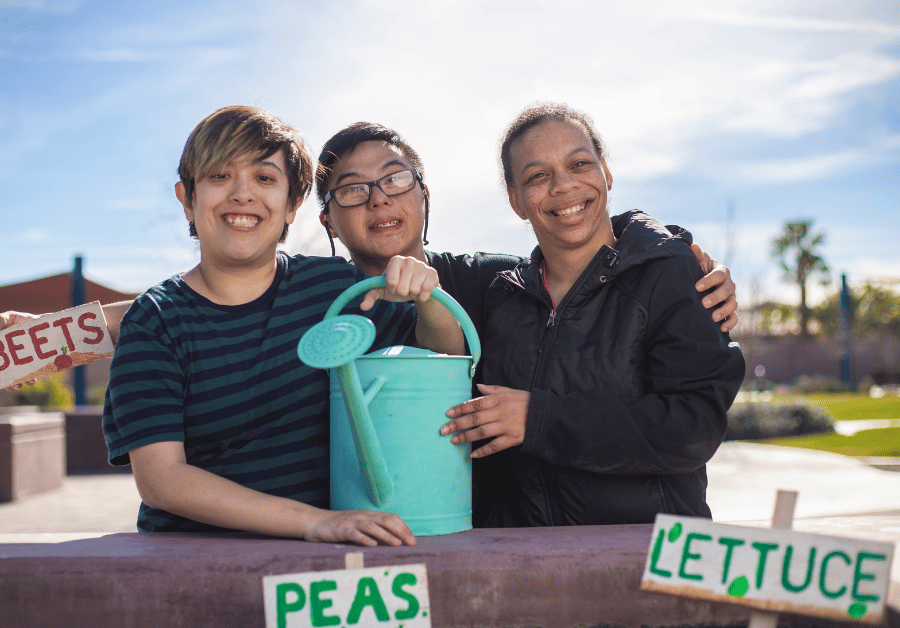
Navigating the NDIS can be complex, but you don't have to do it alone. Alliance Care Support is dedicated to empowering individuals with disabilities by providing tailored care, support, and resources. We can help you with:
- Understanding your NDIS plan: We can help you understand your NDIS plan and how to use your funding to achieve your goals.
- Identifying social and community participation opportunities: We can help you identify activities that align with your interests and goals.
- Connecting you with support workers: We can connect you with experienced and compassionate support workers who can provide assistance with personal care, transport, and participation in activities.
- Providing transport services: We can provide transport services to help you get to and from activities.
- Assisting with NDIS plan management: We can manage your NDIS funding and ensure that you are using it effectively.
The Benefits of Increased Social and Community Participation
Participating in social and community activities can have a profound impact on your life. Some of the benefits include:
- Improved mental health and wellbeing: Social interaction and community involvement can reduce feelings of loneliness, isolation, and depression.
- Increased self-esteem and confidence: Participating in activities and achieving goals can boost your self-esteem and confidence.
- Enhanced social skills: Interacting with others can help you develop and improve your social skills.
- Greater independence: Participating in activities and learning new skills can increase your independence.
- A sense of belonging: Being an active member of your community can give you a sense of belonging and purpose.
Excited to take the first step?
Book a free 30-min consultation with our Social and Community specialist
Get in touch
Tips for Maximising Your NDIS Funding for Social Participation
Here are some tips to help you get the most out of your NDIS funding for social and community participation:
- Be proactive: Don't wait for opportunities to come to you. Actively seek out activities and programs that interest you.
- Think outside the box: Be creative and explore different options for social and community participation.
- Don't be afraid to ask for help: If you need assistance with finding activities or accessing supports, don't hesitate to ask for help from your NDIS planner, support coordinator, or service provider.
- Track your progress: Keep track of the activities you participate in and the progress you are making towards your goals. This will help you demonstrate the value of your NDIS funding.
- Review your plan regularly: Review your NDIS plan regularly to ensure that it continues to meet your needs and goals.
Common Challenges and Solutions
While the NDIS aims to support social and community participation, some common challenges can arise. Here are some potential hurdles and solutions:
- Challenge: Difficulty finding suitable activities.
- Solution: Work with a support coordinator or utilise online resources to research local groups, programs, and events tailored to your interests and abilities.
- Challenge: Transportation barriers.
- Solution: Explore NDIS funding for transport assistance, investigate accessible public transport options, or consider engaging a support worker for transportation.
- Challenge: Social anxiety or lack of confidence.
- Solution: Start with smaller, less overwhelming activities. Consider attending a social skills workshop or working with a therapist to build confidence.
- Challenge: Funding limitations.
- Solution: Prioritise your most important goals and explore cost-effective options. Consider free community programs or activities.
- Challenge: Lack of awareness of available resources.
- Solution: Connect with local disability support organisations, attend NDIS information sessions, and utilise online NDIS resources.
The Role of Technology in Social Participation
Technology can play a crucial role in facilitating social and community participation for people with disabilities. Here are some examples:
- Online social groups and forums: Connect with people who share your interests from the comfort of your own home.
- Assistive technology: Use assistive technology devices and software to overcome barriers to participation.
- Virtual reality: Experience virtual environments and participate in activities that you might not be able to do in the real world.
- Telehealth: Access healthcare and support services remotely.
- Social media: Connect with friends, family, and community groups.
Frequently Asked Questions on Social & Community
Yes! Alliance Care Support provides:
Experienced support workers to attend activities with you
Transport assistance
Help with planning and budgeting your NDIS supports
Access to our monthly community event calendar
That’s completely okay! We offer:
One-on-one support
Small group outings
Help with building confidence and social skills
Customised plans that suit your comfort level
You can start small and gradually increase your participation over time. Alliance Care Support provide 1:1 support in Adelaide, so get in touch - 1300 039 894
Conclusion
Social and community participation is a vital part of living a fulfilling life. The NDIS provides funding and support to help you achieve your social goals and connect with your community. By identifying your goals, accessing appropriate supports, and embracing opportunities, you can unlock a world of possibilities and live your best life.
Get started with the Social and Community Participation program with Alliance Care. Contact Alliance Care Support today to discuss your NDIS plan and how we can help you achieve your social and community participation goals.
